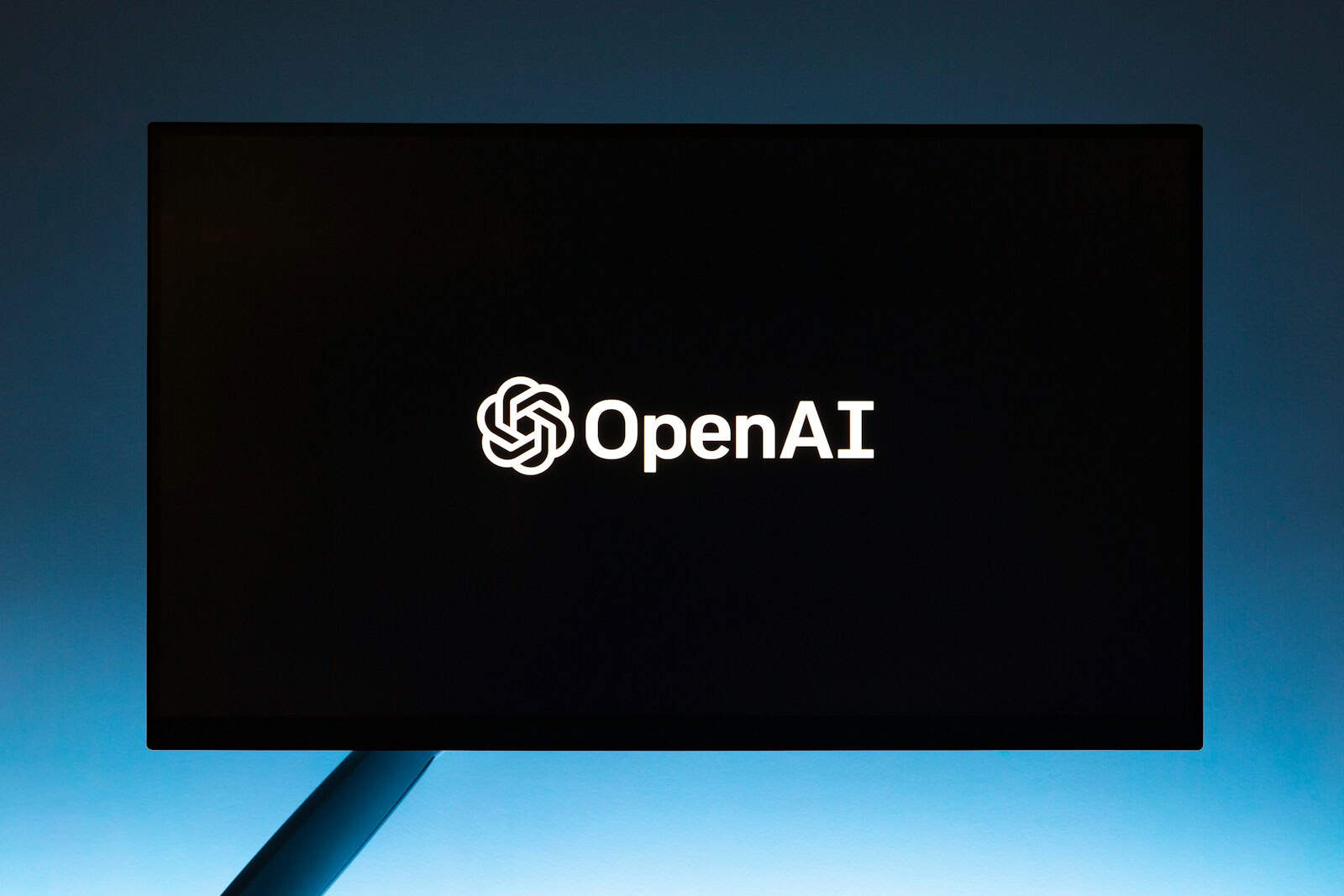OpenAI has just closed a massive $40 billion funding round, setting a new record for private tech company financing. This historic investment values the artificial intelligence developer at $300 billion, positioning it alongside ByteDance as the second most valuable privately-held company in the world. Only Elon Musk’s SpaceX ranks higher in the private company valuation hierarchy.
The SoftBank-led funding round represents a major vote of confidence in OpenAI’s technology and future growth potential. This investment comes at a time when AI development is accelerating rapidly, with major tech companies racing to establish dominance in this transformative field. The San Francisco-based company has quickly risen to prominence through its development of powerful AI systems that have captured both public imagination and serious investment interest.
OpenAI’s Monumental $40 Billion Funding Round
OpenAI has achieved a significant milestone by securing a $40 billion funding round led by SoftBank, elevating its valuation to $300 billion. This landmark investment underscores the burgeoning confidence in artificial intelligence and solidifies OpenAI’s position as a leader in the AI industry.
Details of the Funding Round
The funding round comprises an initial $10 billion infusion, with SoftBank contributing $7.5 billion and the remainder from investors such as Microsoft, Thrive Capital, Altimeter Capital, and Coatue Management. An additional $30 billion is anticipated by year-end, contingent upon OpenAI’s successful transition to a for-profit entity. This financial commitment is poised to bolster OpenAI’s AI research, scale its computing infrastructure, and enhance tools like ChatGPT, which currently serves 500 million users weekly.
Implications for the AI Industry
This substantial investment signifies a pivotal moment in the AI sector, highlighting the escalating demand for advanced AI solutions across various industries. OpenAI’s enhanced financial capacity is expected to accelerate the development of artificial general intelligence (AGI) and other groundbreaking AI technologies, fostering innovation and competition within the field.
Global Standing Among Private Companies
With this funding, OpenAI’s valuation places it among the most valuable private companies worldwide. Below is a table showcasing the current valuations of leading private firms:
| Company | Valuation (in billions) |
|---|---|
| ByteDance | $315 |
| OpenAI | $300 |
| SpaceX | $210 |
| Ant Group | $200 |
| Jio Platforms | $112 |
| Stripe | $92 |
| xAI | $80 |
This table illustrates OpenAI’s ascent in the global market, now trailing only ByteDance in valuation among private companies.
Future Prospects
OpenAI’s successful funding round not only enhances its research and development capabilities but also positions it to attract top talent and forge strategic partnerships. As the AI landscape evolves, OpenAI’s advancements are expected to have far-reaching impacts across sectors such as healthcare, finance, and technology, driving further innovation and growth.
Key Takeaways
- OpenAI has secured a record-breaking $40 billion in funding, the largest private tech fundraising round in history.
- The company is now valued at $300 billion, making it tied with ByteDance as the second most valuable private company globally.
- This massive investment signals strong investor confidence in AI technology and OpenAI’s future growth potential.
OpenAI’s Valuation Surge
OpenAI’s recent $40 billion funding round has catapulted the AI research company to an extraordinary $300 billion valuation, marking one of the most significant financial milestones in private company history. This massive valuation reflects growing investor confidence in artificial intelligence as a transformative technology.
Comparison with Bytedance
OpenAI now stands as the second most valuable private company globally, with only ByteDance ahead in the rankings. ByteDance, the Chinese parent company of TikTok, has maintained its position at the top with a valuation exceeding $300 billion.
This positioning places OpenAI ahead of other highly valued private companies like SpaceX and Stripe. The gap between OpenAI and these companies has widened significantly following this latest funding round.
What makes this achievement particularly remarkable is the company’s relatively young age compared to ByteDance. OpenAI has reached this valuation milestone in fewer years since its founding in 2015.
The Impact of Artificial Intelligence
The unprecedented valuation reflects the market’s strong belief in AI’s future economic potential. OpenAI’s ChatGPT and other AI systems have demonstrated commercial viability beyond initial expectations.
Investors, led by SoftBank Group Corp., are betting on OpenAI’s ability to revolutionize multiple industries through its advanced language models and other AI technologies. The company’s research leadership position gives it a strategic advantage in the rapidly evolving AI landscape.
This funding will likely accelerate OpenAI’s research capabilities and infrastructure development. The company needs substantial computing resources to train and run its increasingly sophisticated AI models.
The valuation surge also indicates a shift in how markets value intellectual property and AI expertise compared to traditional business metrics.
Investment and Financial Details
OpenAI’s recent funding round represents a landmark moment in venture capital history, securing $40 billion at a $300 billion valuation. This extraordinary investment catapults the AI leader into the upper echelon of private companies globally.
SoftBank’s Role in the Funding
SoftBank Group, led by visionary investor Masayoshi Son, spearheaded this historic funding round for OpenAI. The Japanese conglomerate has a track record of making bold bets on transformative technologies, and this investment continues that tradition.
Sources confirm SoftBank committed a significant portion of the $40 billion raised. This investment aligns with Son’s longstanding belief in AI as a revolutionary force in the global economy.
The funding round included other investors as well, though SoftBank’s leadership role proved crucial in reaching the massive $300 billion valuation figure. This valuation places OpenAI among elite private companies like SpaceX, ByteDance, and Stripe.
Sam Altman on the $40 Billion Fund-Raising
OpenAI CEO Sam Altman described the investment as a critical step in advancing the company’s AI research and development capabilities. The additional capital will support continued innovation in generative AI technologies.
Altman emphasized that the funding would help OpenAI expand its infrastructure, computing resources, and talent acquisition efforts. These resources are essential for the complex and expensive work of developing cutting-edge AI systems.
“This investment provides the runway we need to pursue our most ambitious research goals,” Altman reportedly stated when discussing the funding round.
The CEO also highlighted plans to accelerate deployment of AI tools for enterprises and expand partnerships with key technology companies. This strategic direction reflects OpenAI’s dual focus on advancing AI capabilities while developing practical applications.
Technological Impact and Future Prospects
OpenAI’s massive $40 billion funding round positions the company to make unprecedented advances in artificial intelligence technology. This investment will likely accelerate development across various AI domains while creating new partnerships that reshape market dynamics.
Comparative Analysis with SpaceX
While both SpaceX and OpenAI represent revolutionary technologies with enormous private valuations, their technological impacts differ significantly. SpaceX focuses on physical infrastructure and space exploration, requiring massive capital expenditure on tangible assets. OpenAI’s investments flow primarily into research, talent acquisition, and computational resources.
SpaceX has transformed space access through reusable rockets and aims to enable interplanetary travel. Similarly, OpenAI seeks to transform information processing and problem-solving across all industries.
Both companies have charismatic connections to Elon Musk, though he departed OpenAI’s board in 2018. SpaceX maintains a government-focused business model with NASA contracts, while OpenAI balances commercial products with research objectives.
Strategic Partnerships and Market Influence
Microsoft’s multibillion-dollar investment in OpenAI represents one of tech’s most significant strategic partnerships. This collaboration has integrated OpenAI’s technology into Microsoft products like Bing, Office, and developer tools.
The partnership gives Microsoft competitive advantages against Google and Amazon in the AI space. For OpenAI, Microsoft provides crucial computing infrastructure and commercial distribution channels.
This $300 billion valuation creates expectations for OpenAI to deliver transformative products beyond ChatGPT and DALL-E. The company must navigate complex relationships with regulators, competitors, and its own safety commitments.
OpenAI’s influence extends beyond technology into policy discussions about AI governance and safety. The company increasingly shapes industry standards while facing pressure to commercialize its research rapidly enough to justify this unprecedented valuation.
Privacy and Data Policy Reactions
OpenAI’s massive funding round has drawn attention to the company’s approach to user data and privacy. Critics and supporters alike are examining how the company handles personal information as it grows into one of the world’s most valuable private entities.
Policy Changes and User Privacy
OpenAI recently updated its privacy policies to address growing concerns about how user data feeds into its AI models. The company now provides clearer information about what personal data it collects, including IP addresses, search data, and content from user interactions.
Many users have expressed concern about how their conversations might be used for model training. In response, OpenAI has enhanced privacy settings that allow users to opt out of having their data used for AI training purposes.
Security measures have also been strengthened as the company scales. The $40 billion investment will partly fund improved data protection infrastructure to safeguard sensitive information.
Some privacy advocates question whether OpenAI’s policies on geolocation data and audience research go far enough. They argue that as the company’s valuation soars, its responsibility to protect user privacy should increase proportionally.
Content measurement practices remain under scrutiny, especially regarding how the company balances personalized advertising potential against privacy concerns.
Frequently Asked Questions
OpenAI’s historic $40 billion funding round has raised many questions about the company’s valuation, investors, and future plans. The funding deal, led by SoftBank, places OpenAI at a $300 billion valuation, making it one of the most valuable private companies globally.
What factors contributed to OpenAI’s significant valuation increase?
OpenAI’s valuation has soared due to the widespread adoption of its AI products, particularly ChatGPT and GPT-4. These technologies have demonstrated exceptional capabilities in generating human-like text and code.
The company’s strong partnerships with major tech firms, especially Microsoft, have also boosted investor confidence. Microsoft’s multi-billion dollar investment has provided OpenAI with computing resources and market access.
Growing enterprise adoption of OpenAI’s API services has created a substantial revenue stream, showing the commercial viability of its AI models.
How does OpenAI plan to utilize the $40 billion in funding?
OpenAI will likely direct significant funding toward research and development of more advanced AI models. This includes work on GPT-5 and other next-generation systems with enhanced capabilities.
Infrastructure expansion will be another priority, with investments in computing power and data centers to support model training and inference at scale.
The company is expected to grow its team substantially, hiring top AI researchers, engineers, and safety experts to advance its technology while addressing potential risks.
What are the implications of OpenAI’s valuation for the AI industry as a whole?
This massive valuation signals investor belief that AI will transform numerous industries and create enormous economic value. It may trigger increased funding for other AI startups and research initiatives.
OpenAI’s success could accelerate the AI arms race among tech giants like Google, Meta, and Amazon. These companies may increase their AI investments to remain competitive.
The valuation sets new expectations for AI companies’ growth potential, potentially reshaping how investors evaluate companies in this sector.
How does OpenAI’s valuation compare with other leading tech companies?
At $300 billion, OpenAI now ties with ByteDance (TikTok’s parent company) as the second most valuable private company globally. Only SpaceX, led by Elon Musk, has a higher private valuation.
OpenAI’s valuation exceeds that of many public tech giants like IBM, Oracle, and Adobe. This is remarkable considering the company’s relatively short history compared to these established corporations.
The valuation reflects exceptional growth expectations, with investors betting on AI’s future rather than current revenue alone.
What revenue models and products does OpenAI have that justify its $300 billion valuation?
OpenAI offers subscription services like ChatGPT Plus and Team/Enterprise plans that provide premium access to its AI models. These generate recurring revenue from individual and business users.
The company licenses its technology to businesses through its API services. Many companies integrate OpenAI’s models into their products, creating a growing B2B revenue stream.
Enterprise solutions and custom AI implementations for large organizations represent another significant revenue source. These specialized offerings command premium pricing.
Can you highlight the major investors involved in the recent funding round of OpenAI?
SoftBank led the $40 billion funding round, making it the largest investor in this historic financing event. This continues SoftBank’s strategy of making bold bets on transformative technologies.
Previous investors like Microsoft, Khosla Ventures, and Thrive Capital likely participated in this round. Microsoft has been particularly committed to OpenAI’s growth since its initial investment.
The funding round attracted interest from sovereign wealth funds and institutional investors seeking exposure to advanced AI technology. This diverse investor base provides OpenAI with extensive resources and connections.







